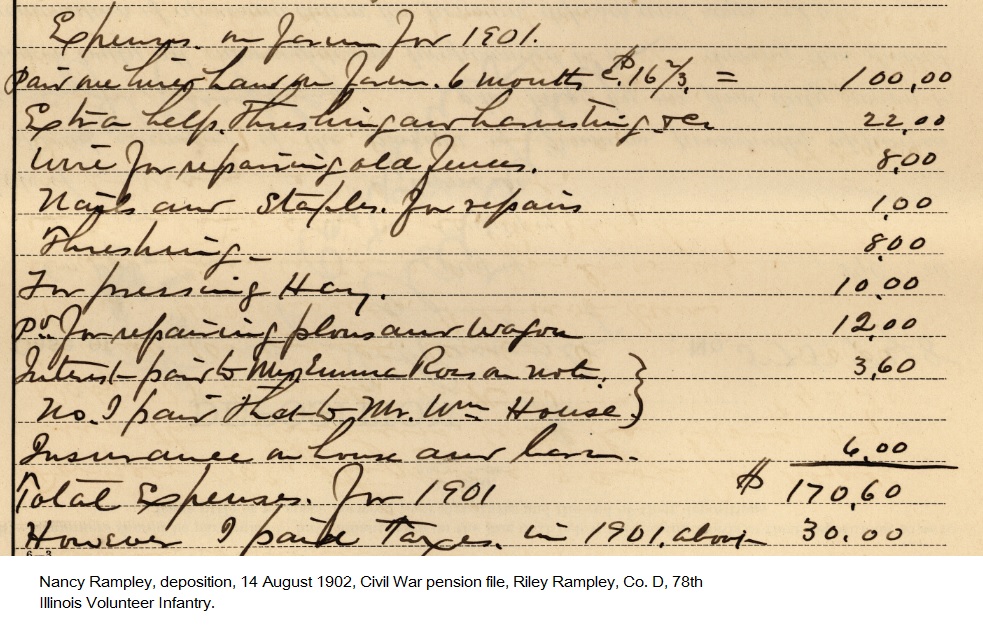In an earlier post, we saw that Nancy Rampley claimed in her 1902 deposition in support of her Civil War widow’s pension that she had $360.50 in farm income. That income was offset by several expenses that were used in support of Nancy’s claim that her farm income was insufficient to support herself and her minor children.
Nancy was splitting the income from the farm with her grown son who actually did the farm work for her. That was offset by slightly over $200 in expenses in 1902. Only two of the expenses are further documented in her application–the hired man’s pay and the property taxes. The rest are included in Nancy’s deposition and apparently the special examiner did not ask for additional documentation of their amounts.
A summary of Nancy’s expenses from 1901:
- hiring a hired man for 6 months–$100.00
- extra help at harvest time-$22.00
- wire to repair fences–$8.00
- nail and staples for repairs–$1.00
- threshing–$8.00
- repairs to plow[s?] and wagon–$12.00
- interest paid to Mr. William House on a note–$3.60
- insurance on house and barn–$6.00
- taxes–about $30.00

Transcribing these items is somewhat easier when one is reasonably familiar with farming terminology (I could see someone carelessly reading “pressing hay” as “Trespassing Hay” or something similar). There is no comment about what sort of wire (barbed wire, woven wire, etc.) was used to fix the fence. The Rampleys likely hired a threshing crew to take care of that task when the time came. In 1901 not all farm families could afford that equipment for themselves and it was labor intensive.
There’s no mention of any seed as an expense for the crops on which Nancy reported income. And of course there are no expenses for modern conveniences such as electricity, gas, etc. I was somewhat surprised that Nancy had a hired man and had hired additional help with the farm work. I had mistakenly assumed a farm the size of hers would not need additional labor on a regular basis, but it’s important to remember that farming at the turn of the 20th century highly manually labor intensive.
The hired man also provided testimony in Nancy’s claim. In 1901 and 1902 he was her hired man. By the spring of 1903 he was her son-in-law. Good thing for me as he’s my great-grandfather. Nancy’s daughter Fannie married the hired man.

No responses yet